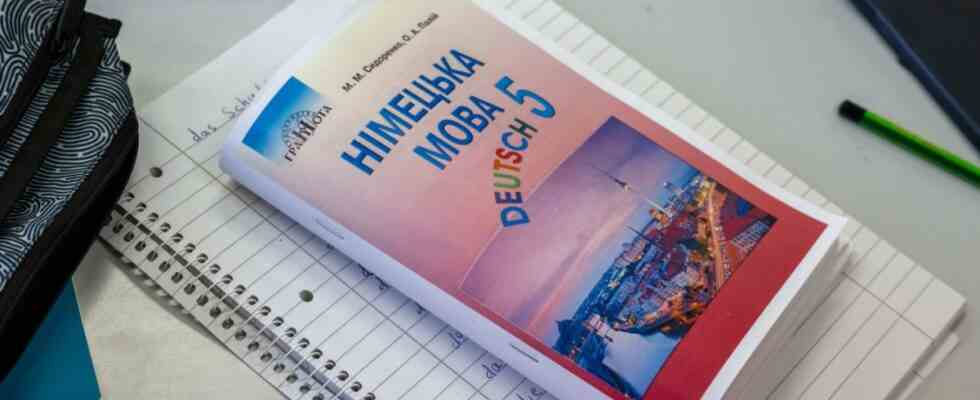Minister of Education Michael Piazolo (FW) discussed his concept with the Education Committee on how children and young people from Ukraine should go to school after the summer holidays. Around 27,000 young people have “arrived in the school system” at the moment, and he expects 35,000 to 40,000 for the coming school year. Compulsory schooling will then also take effect for most of the refugees Integration class and sometimes part of regular classes. The estimate is based on information from the Ministry of the Interior on registered school-age children. However, it is unclear whether they are all still in the country – also whether a return to Ukraine or permanent residence in Bavaria is planned. The number, said Piazolo on Thursday in the state parliament, is comparable to the size of a high school class. “Noticeable” so, “a big challenge”. But he notices the “huge solidarity when you’re outside at the schools”.
Piazolo described the previous welcome groups as a “successful model”, there are 1100 in the Free State, with 3500 members; a good 40 percent of them with formal teaching qualifications. In itself, teaching in regular classes is the goal, but the basis for this is knowledge of German, which many of them have to develop first. In elementary schools, this should happen together with all children using the “language pool” principle – at that age you accept language “faster, easier, more playfully”, according to Piazolo, you can “let yourself fall into it”. Bridge classes will be the norm at secondary schools. Unlike in 2015, when many refugees arrived in Bavaria, all types of schools should set up schools, including high schools. German as a second language is the main focus in these classes with an otherwise largely normal timetable; distance learning offers, online from the Ukraine, could also be used.
Among other things, the Free State has “unblocked” 1,000 staff positions that were actually intended in the budget for the increased need for high schools in 2025 (when G-8 and G-9 years meet) – earmarked for bridging classes. “These jobs are new jobs for us,” Piazolo said of the accusation that it was a kind of cheating. Without this approach, one would have had to wait for the 2023 budget. Welcoming workers from the previous groups, part-time increases, the “reservoir” of pensioners and also refugee Ukrainian teachers should complete the tableau. The minister was in good spirits that everything would work out; certainly with flexibility. “We also learn something new every day, we are constantly developing it further.”
In principle, there is praise for the bridge classes
In principle, the opposition praised the rapid establishment of the bridge classes, but criticized the details. No matter how creative projects you can come up with, “it depends on the staff,” said Anna Schwamberger (Greens), she would like more permanent positions. Simone Strohmayr (SPD) reported on visiting a primary school and a lot of bureaucracy to keep the forces who are now working in welcome groups for the next school year. Matthias Fischbach (FDP) said that his “hope was limited” when retired teachers were deployed, after all the group had been courted for years. Gerhard Waschler (CSU) countered that one should not underestimate this important “tesserae”. Oskar Atzinger (AfD) asked whether the Ukrainians had to be “forced to be happy by the German school system” at all, given that distance learning existed. “Blank nonsense,” said Johann Häusler (FW), compulsory schooling was probably a foreign concept for the AfD.
A liberated-looking Minister of Education could be seen in the committee, with a tendency to joke: he greeted a group of visitors from the CSU-affiliated Hanns-Seidel-Foundation with a wink as being close to the SPD, at another point he assured that there were no teachers hidden in the basement of his ministry, only files. As a reminder: During the turbulence around the schools in the pandemic, mainly because of the Mebis learning platform, Piazolo came under fire, in the BR-Bayerntrend at the beginning of 2021 74 percent of all respondents were dissatisfied with him – disastrous. You could see his anger at the time. Meanwhile, observers perceive team spirit in the education committee, and the arrival of refugees at schools has so far gone without major glitches. Although the pandemic could become a problem again next school year, nothing can be ruled out. “Our goal, like this school year, is face-to-face teaching,” Piazolo clarified. However, the development of the virus variants and the future corona legal basis by the federal government are to be seen.

